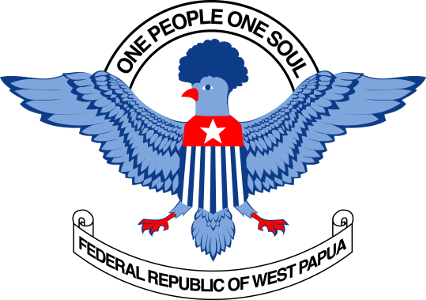Media Statement, 7 December 2018
Indonesia needs to be pushed to West Papua’s negotiating table at the United Nations
Commander Eqinus Kogoya of West Papua’s Liberation Army (TPN-OPM) has taken responsibility for the attack on thirty-one Indonesians in Nduga in the Central Highlands of West Papua on 2 December 2018.
“The workers killed were not civilians, as Indonesia reported. They were Indonesian military; Kostrad Green Berets from the SIPUR special unit masquerading as road-and-bridge construction workers” Kogoya said [1]. “My intelligence monitored them closely for three months before I ordered the attack.”
Nduga is the homeland of the TPN-OPM’s Command III region. Kogoya has often found it necessary to engage Kostrad Green Beret troops, most recently during the gubernatorial elections last July, when he raised the Morning Star flag in front of the Nduga Parliament to signal the people’s refusal to vote.
The veteran freedom-fighter defended his right to attack Indonesian military disguising themselves as infrastructure workers who filmed local Morning Star ceremonies and activities on 1 December 2018 threatening the safety of the community that the TPN-OPM is bound by law to protect.
“The role of the West Papua National Liberation Army is unambiguous” he said. “Like any national defence force, it is obliged to defend the sovereignty of the territory and the people it is responsible for. According to the secular law of armed conflict, war may be waged to force an aggressor to cease inflicting harm or to redress wrongs inflicted on innocents, especially when negotiation and other means have failed.”
The clash between the two forces on Sunday was after 560 activists (most of them Non-Papuan Indonesians) were arrested and severely tortured in towns across the archipelago for raising the Morning Star flag on 1 December, the date now recognised around the world as West Papua National Day. Eleven days before that 104 West Papua National Parliament (KNPB) activists were arrested during a Congress.
The United Liberation Movement for West Papua believes the West Papuans’ rights-based negotiation-driven independence movement stands on two feet: people power and the organisation of political and diplomatic offenes alongside Intelligence and military operations.
“Our freedom-fighters do not engage militarily unless they are pursued by Indonesian security forces. But if they are intimidated or attacked, they have the right—and duty—to defend themselves and the homeland of the people they protect”.
General Rymizard Ryacudu, Minister of National Defence, told the Indonesian Parliament to send a large military force to ‘slaughter all Free Papua rebels’ (4 December 2018). Needless to say his declaration of war will cause as much suffering to Indonesian migrants as to Melanesian-indigenous Papuans who are, furthermore, calculated to be ‘a small dwindling minority in their homeland’ by 2020.
ULMWP claims the death of the military in Nduga on 2 December 2018 is a regrettable outcome of the Indonesian occupation of West Papua fifty-seven years ago, which was facilitated by Cold War colonial powers and enabled by the United Nations in 1962, 1963 and 1969.
“ULMWP understands that the military conflict between the Indonesian military and the TPN-OPM is causing suffering and trauma to West Papuans and Indonesian civilians living in West Papua” he said. “An independent adjudicator is required to investigate and mediate resolution of this long-standing conflict”.
Jacob Rumbiak
Spokesperson, United Liberations Movement for West Papua
Note 1 Kostrad is the Indonesian Army’s Strategic Operational Command, charged with conducting strategic defence and security operations.
Note 2 Ryacudu was Chief of Staff of the Indonesian National Army in 2001, and praised as ‘heroes’ the Kopassus special forces corps led by Lieutenant Colonel Hartono who kidnapped and killed the Papuan political leader Theys Eluay and his driver Aristoteles Masoka.
